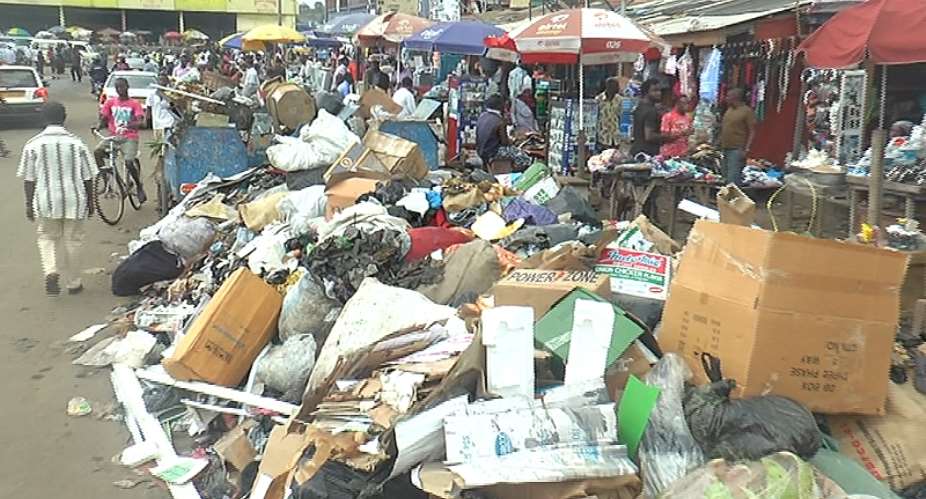Madam Cecelia Dapaah, the Minister of Sanitation and Water Resources, has called on colleague ministers of sanitation and health to make frantic efforts to prioritise issues of SDG-6 in their various countries.
She urged them to put in place local roadmaps towards achieving them, because "we cannot afford to fail our people in this regard".
Madam Dapaah was speaking at the opening of a two-day high level meeting to discuss Africa Regional efforts in achieving SDG 3 and 6 and to launch the WASH Strategy and Round II Reports in Accra.
Health and sanitation ministers and other stakeholders in the sector participated in the conference, which was on the theme: "Achieving SDG 6 and Safe Water for All: A Focus on Water Treatment and WASH in Healthcare Facilities".
The SDG 3 and 6 seek to ensure healthy lives and promote the well-being for all at all ages and to ensure availability and sustainable management of water and Sanitation for all by 2030.
Madam Dapaah said there was the need for Africa to focus on achieving local sustainability so that communities could successfully own, support and maintain their water systems to ensure quality drinking water.
"We need to support community structures with the required technical know-how and get them to be committed to achieving adequate and safe water for all to improve on their health and economic well-being," she added.
She said Ghana had made significant progress by increasing access to improved water supply to about 80 per cent of the population, in addition to eliminating Guinea worm.
The Minister said, however, that in spite of those successes, about 4,000 Ghanaian children still died annually from diarrhoea and an additional 23 per cent suffer from stunted growth and chronic malnutrition, which were linked to unsafe water and poor sanitation.
Madam Dapaah said it must be emphasised that currently five million Ghanaians still used water from unsafe sources while 10 million more remained inadequately served.
The Minister said government recognised access to safe drinking water as a basic human right and essential to protecting public health.
Nana Adjei Mensah, the Acting Chief Director of Ministry of Health, said contaminated water was a risk factor for diseases such as diarrhoea and cholera.
He said the Ministry of Health, in collaboration with related ministries and agencies, had made some strides in improving WASH services in health facilities to enhance the overall quality of clinical service.
He said the Ministry had also collaborated with UNICEF to initiate projects with an overall objective of developing a national strategy for WASH in healthcare facilities.
He envisaged that the implementation of the project would contribute to quality of care and enhance infection prevention.
Dr Owen Kaluwa, the WHO Country Representative, said lack of access to safe water and adequate sanitation was one of the significant environmental risk factors to health.
He said the WHO was, therefore, working strategically to improve health through better water, sanitation and hygiene.
"We need to form effective partnerships in the work we have to do together to improve on water and sanitation," he added.
Dr Kaluwa said the participating countries were an illustration of the collaboration and partnership needed to harness the strengths to achieve the greater good.





 Whoever participated in the plunder of the state must be held accountable – Jane...
Whoever participated in the plunder of the state must be held accountable – Jane...
 A vote for John and Jane is a vote to pull Ghana from the precipice of destructi...
A vote for John and Jane is a vote to pull Ghana from the precipice of destructi...
 I’ll repay your abiding confidence with loyalty, understanding and a devotion to...
I’ll repay your abiding confidence with loyalty, understanding and a devotion to...
 ‘I’ve learnt deeply useful lessons for the future' — Serwaa Amihere breaks silen...
‘I’ve learnt deeply useful lessons for the future' — Serwaa Amihere breaks silen...
 I’m sorry for the embarrassment – Serwaa Amihere apologises for leaked sex video
I’m sorry for the embarrassment – Serwaa Amihere apologises for leaked sex video
 Dumsor: Matthew Opoku Prempeh not in charge of Energy sector – Minority
Dumsor: Matthew Opoku Prempeh not in charge of Energy sector – Minority
 Adu Boahen’s murder: Police arrest house help who was in possession of deceased’...
Adu Boahen’s murder: Police arrest house help who was in possession of deceased’...
 Akufo-Addo nominates Felicia Attipoe as Tema West MCE
Akufo-Addo nominates Felicia Attipoe as Tema West MCE
 Election 2024: I can't have someone I defeated twice as my successor – Akufo-Add...
Election 2024: I can't have someone I defeated twice as my successor – Akufo-Add...
